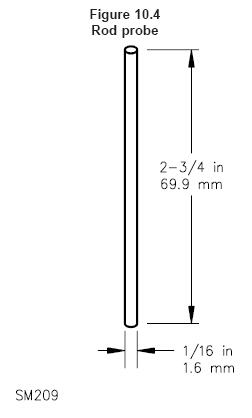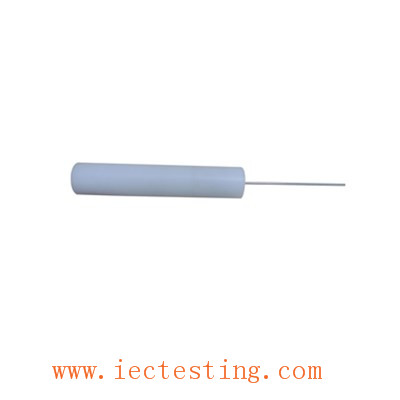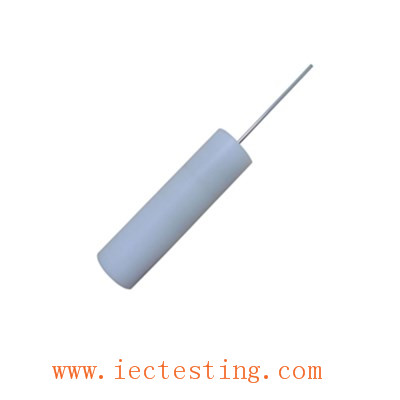Rod probe UL1278 Figure 10.4 SM209 :
It conforms to standard requirement of UL1278 Figure 10.4. The handle is made of nylon and the probe is made of hard steel.

Reference Standard of UL1278 below:
10 Guarding of Heating Elements
10.1 General
10.1.1 The heating element and any part of the element assembly (such as an element support, sheath,
and similar parts) shall be so guarded that flammable material as well as persons will be protected against contacting it.
10.1.2 Any heater projections such as guards or grilles that are intended to guard hot heater surfaces
shall be positively secured to the heater such as by screws, rivets or welding or being engaged in slots
so that they cannot be removed without the use of tools, breaking or permanent bending or distortion.
10.1.3 The acceptability of a guard is judged with respect to its general serviceability and with respect to
the shape and size or both of the openings in it, in conjunction with the distance of the guard from the
heating element and the other high-temperature parts mentioned in 10.1.1. Except as noted in 10.1.5, an
opening in a guard is considered to be acceptable if, with the heater in any intended operating position,
the following conditions are met:
a) The shape and size of an opening are such that a test gauge in the form of a right-circular
cone having a base diameter of 2-3/4 inches (69.9 mm) and an altitude of 5-1/2 inches (139.7mm), see Figure 10.1,is prevented from touching the heating element and the other hightemperature parts when the cone probe is inserted, apex first, in any manner. See 10.1.4.
b) The shape and size of an opening which permits the vertically downward entrance of a bar probe 1/2 inch (12.7 mm) wide and 1/16 inch (1.6 mm) thick, see Figure 10.2, are such that a triangle probe 1/16 inch thick and in the form of an isosceles triangle having a base of 2-3/4
inches and an altitude of 5-1/2 inches, see Figure 10.3, is prevented from touching the heating
element and the other high-temperature parts when the triangle probe is inserted, apex first, in
any manner. The testing of an opening with the triangle probe applies also where the vertically
downward insertion of the bar is prevented by the construction of the guard, the use of an
additional barrier, or both, unless the vertically applied bar tends to be deflected outward – that
is, away from the guard.
c) The area of an opening in a substantially vertical face of a guard is not more than 3-1/4
square inches (2100 mm2 ) if the size and/or shape of the opening permits the entrance from
any horizontal direction of a vertically oriented rod probe 1/16 inch in diameter and 2-3/4 inch
long, see Figure 10.4. Also, see Figure 10.5.

